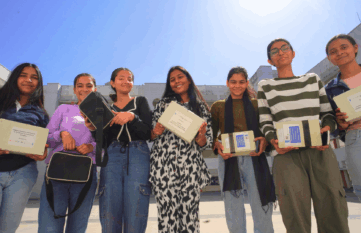Saving forests with the help of algorithms and data

“When we set out to map our forests, it wasn’t just about trees—it was about preserving a way of life,” shares, Teodyl Nkuintchua, Congo Basin Strategy and Engagement Leader and Country Manager for the Republic of Congo at World Resources Institute Africa. He is one of the grantees of Lacuna Fund’s Climate and Forest initiative and highlights the profound connection between local ecosystems and community resilience.
Forests are vital not just for ecosystems, but for the millions of people who rely on them. This is why the Lacuna Fund launched its first Climate and Forests call in 2023, with support of Germany’s Federal Ministry of Economic Cooperation and Development (BMZ) and implemented through GIZ’s “FAIR Forward – Artificial Intelligence for All” programme. 14 innovative teams across Africa, Asia, and Latin America were selected to create machine learning datasets. The aim is to fill critical data gaps in climate and forestry research, fostering actionable insights and locally tailored solutions.
The selected projects span a wide range of climate challenges and geographic regions, from the Galapagos Islands to Southeast Asia. In Brazil, a team is developing datasets to monitor emissions from forest degradation, directly supporting carbon market activities. A project in Gabon studies the effects of forest fragmentation on biodiversity, while in Kenya, a grantee is creating data to support climate finance and sustainable forestry.
Lacuna Fund will be instrumental in supporting the development of a system that will enable us to participatorily map the health of forests in the biodiverse Eastern Himalayan region with indigenous communities, facilitating targeted interventions for climate resilience through forest management—impacting the millions of people that depend on forests for their lives and livelihoods in the Eastern Himalayas.
Michael Dawson, Balipara Foundation
The cooperation between the Lacuna Fund and Fair Forward
The role of BMZ’ political initiative FAIR Forward is central to this stream of Lacuna’s work, aligned with its mission to address artificial intelligence (AI) inequities and ensure that technological resources are accessible to all. The partnership with Lacuna Fund empowers researchers in Africa, Asia and Latin America to generate high-quality, region-specific data. This allows AI models to reflect local environmental and cultural contexts. By supporting these teams, FAIR Forward and Lacuna Fund are fostering AI solutions for climate action that are built on inclusive, locally relevant foundations.
Through the integration of Indigenous knowledge and cutting-edge technology, the Ltome-Katip project not only addresses pressing environmental and technical machine learning challenges but empowers indigenous communities to lead the way in conservation efforts.
Mario Vargas Shakaim (Shuar) from the Ltome-Katip Indigenous-Led Monitoring Project

How AI can help in the fight against climate change
Beyond immediate research applications, these open-access datasets are essential for creating a more transparent, data-driven foundation in climate policy and forest conservation. From policymakers to conservationists, the tools developed will support stakeholders in making informed decisions that drive sustainable change. Each dataset represents a crucial resource, empowering regions to lead in their climate resilience efforts while contributing to global understanding.
The work of these 14 awardees is more than data creation—it’s a significant step toward a future where AI can effectively support forest protection and climate adaptation in even the most vulnerable regions.


